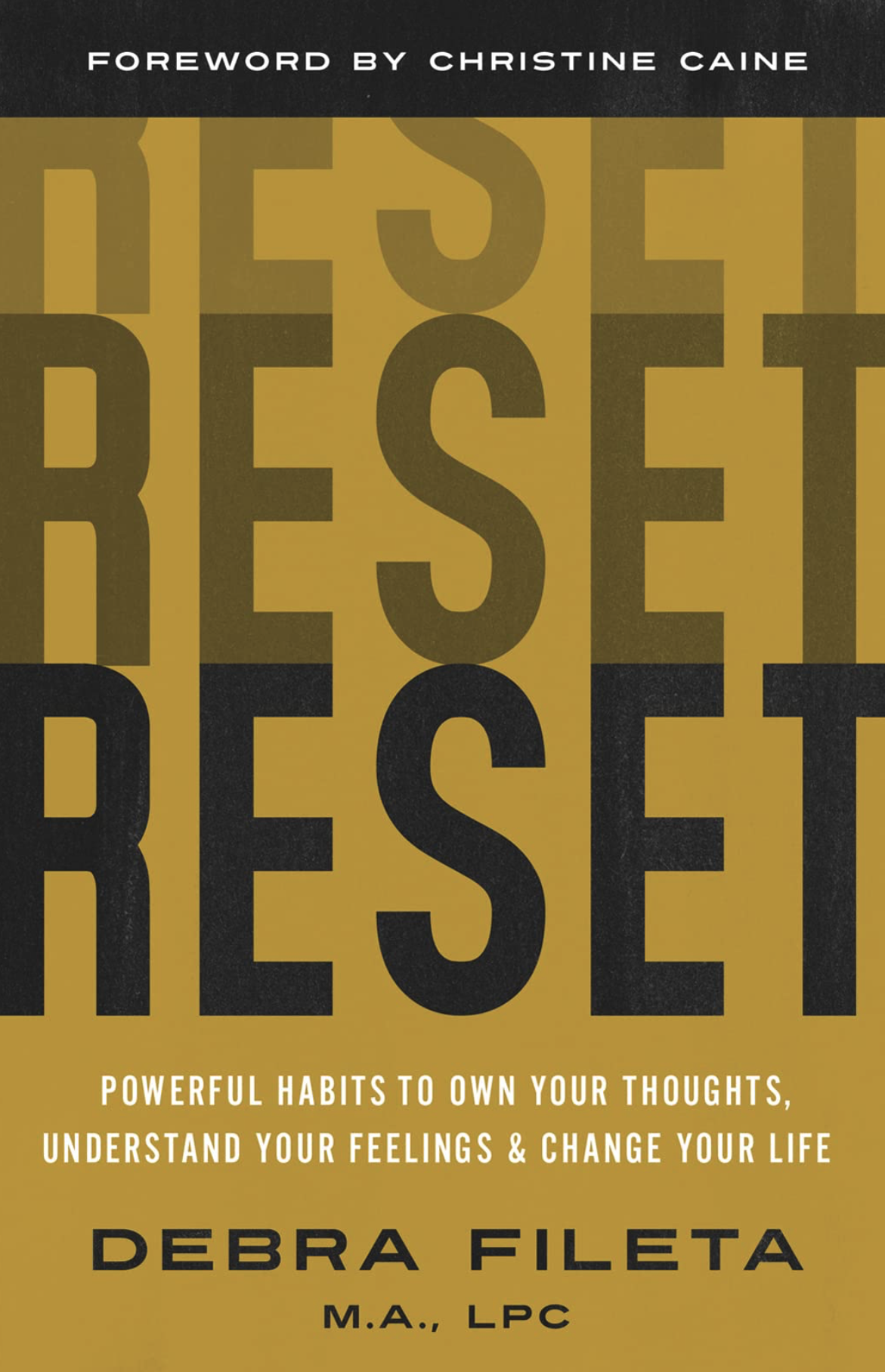How Your Thoughts Might Be Sabotaging Your Relationships

Have you ever heard a new phrase, song, or saying for the first time, and then you start hearing it everywhere over the course of the next few days or weeks? Or maybe you notice a sleek red car drive by that you've never seen before, and then you start seeing it in every parking lot. Or perhaps you learn about a house style while watching HGTV, and the next thing you know, you spot it all over your city or town? Could there really be an increase of people buying that sleek red car you noticed or that new style of house – or are you just more aware of it now?
This is a concept that we refer to in psychology as frequency bias or frequency illusion, and it can happen with pretty much anything. The fancy name for this is the Baader-Meinhof phenomenon. And if you've never heard of it before, there's a good chance you will after today (see what I did there?). The main idea of this phenomenon is that the frequency of those things is not actually increasing, but simply your awareness of them. And that awareness changes everything.
There's so much happening around you in one particular 24-hour period that it's impossible for your brain to absorb it all. But when you bring your attention to something, which is generally called selective attention, you begin to note that specific thing more often. Your brain now tunes into it!
Looking for Patterns
So, what if we could apply this frequency bias to our thoughts? What if we could increase our awareness and begin seeing and understanding our thoughts in ways we didn't before? What if we could tune in to our thinking patterns rather than just defaulting to our usual? The incredible thing is that we can.
In order to identify patterns, we have to have something to work with. To do that, I want you to take a moment and write down five to ten negative thoughts you've had in the last week (write down even more if you can think of them). It could be negative thoughts you've had about yourself (I don't have what it takes to do this!), negative thoughts about others (He doesn't really care about me), or negative thoughts about a situation (This whole thing is hopeless!), Now, I want you to take a look at the things you wrote down and begin to read through them one at a time.
Are there any patterns or themes that begin to emerge?
Are there any themes that you tend to default to again and again and again?
Let's try to isolate those today – because we're trying to get to the root of why you think the way you do. And in order to do that, we need to see if we can find some patterns.
Philippians 4:8 reminds us, "Whatever is true, whatever is noble, whatever is right, whatever is pure, whatever is lovely, whatever is admirable—if anything is excellent or praiseworthy—think about such things."
The beautiful thing about this Scripture is that it permits us to change the pattern. It reminds us that we have the power and control to choose which thoughts we will tune into and meditate on throughout the day. So much of the Bible aligns with healthy psychology and counseling. God knows our tendency to default to the negative, so we're being asked to make it a habit, a daily practice, to tune in to whatever is good, pure, true, and lovely. We're being challenged to increase our awareness of the right thoughts and beliefs throughout the day and in life. We're being challenged: don't just default to your usual, mindless patterns; change the pattern. But to do that, we have to first stop and take note of our patterns, both the good and the bad, so that we can begin to change the way we think. We have to recognize our patterns if we want to replace them. And when we do that, it will begin to change everything because thought change leads to life change.
One of my clients, Hannah, came into our counseling session with her list of negative thoughts from a 24-hour period, and she came in with a list longer than she imagined she would. Here's what it read:
I don't fit in.
They're just pretending to like me.
He's just being nice because he feels sorry for me.
I can't believe I yelled at the kids – I am the worst mom.
If I don't get it together, he will leave me.
They invited me out of pity but don't really want me there.
I don't have what it takes to get it done today.
And those were just some of the things she had on her list. When she actually faced her thoughts, she realized how consistently mean, degrading, negative, and unhealthy they were. When I asked her to see if she could find a pattern – she realized she was stuck in a spiral of thoughts with a theme of inadequacy. She was never good enough. Not in her personal life, not in her marriage, not in her friendships, not as a mom, a homemaker, or a businesswoman. Her thoughts always pointed out where she wasn't measuring up, fixating on all that was lacking. Her thoughts were not only hurting her; they were hurting her relationships. Now that she recognized a theme to her negative thinking, she started seeing it in almost every aspect of her life.
Connecting the Dots
Why was Hannah caught in a cycle of toxic thinking? Why did she always feel like she wasn't enough? Long ago, Hannah had begun defaulting to this way of thinking to try and make sense of why she was adopted. This wasn't a conscious decision on her part because you have to understand she was really young at the time. But sometimes, our brain processes things for us – without our permission or awareness. It tries to make sense of the world around us, whether or not the interpretation it gives us is actually based on truth. False beliefs can start getting planted in our minds and hearts, ideas that we carry – and then if we don't recognize them - beliefs that get lived out in our lives and our closest relationships.
For young Hannah, something inside of her needed to make sense of the fact that she was adopted. Even in the context of a loving, wonderful, compassionate family, there was no conversation about her adoption story. And without healthy discussions about her adoption process, she had to fill in the blanks for herself. In her young mind, the problem was either with her parents or with her. And it was less painful for her to believe that she was the problem than for her to believe that something was terribly wrong with her parents. There must be something they didn't like about me. There must be something wrong with me. I must not have been what they wanted. I must not be good enough. This is where the seeds of her default thinking were planted, watered by the circumstances of life, and fertilized by more unhealthy thinking until she grew up learning to believe those thoughts and apply them to other areas of her life – including in her closest relationships. Consistent thoughts of inadequacy had become a part of her thought process without her awareness.
For Hannah to be freed from her default thinking, she needed a RESET. She began by recognizing her negative thoughts. And then, with the help of the counseling process, we began getting to the root of where those negative thoughts and beliefs started; facing and healing from some of those old wounds. But that alone wasn't enough. Now she had to replace them with truth. It's not enough to simply stop thinking negative thoughts; you have to go to the next step and begin thinking truthful thoughts. Replace them with truth, over and over again until something begins to change. Until YOU begin to change. Debra, are you saying that if I just think healthy thoughts enough, I'll actually start believing them? That's exactly what I'm saying. It took you many years to build up your default thinking, so don't expect things to change overnight. But when you begin to fill your mind with truth, it begins to fill your life with truth. Things begin to change.
It may not seem like you're doing much – repeating statements of truth instead of your negative default thinking, but when you begin replacing your negative thinking with truth, you're changing the function of your brain. Every thought you think releases some sort of neurochemical. Negative thoughts release stress chemicals, and positive ones release feel-good chemicals. So, when you change your thoughts, it literally changes your brain. Your brain is neuroplastic, which means it's malleable – it can change. You have the power to change how your brain works and, in turn, how you feel and what you do by changing your thoughts.
God made our brains, and He knows best the value and importance of thinking about what is true, noble, right, pure, lovely, and admirable. Philippians 4:8 is not just a sweet, sentimental verse in the Bible – it's life or death. Because your thoughts have the power to seriously enhance your life, or to destroy your life completely. If you see the same stream of thinking coming back again, and again, and again – it's time to own up to it and let the mental battle begin. Change your thought patterns, and you'll change your life patterns. Change your life patterns – and you'll change your relationship patterns.
This article is adapted from one of 31 Practices in Debra Fileta’s new book Reset: Powerful habits to own your thoughts, understand your feelings, and change your life and is used with permission. Order your copy of Reset today!

Photo credit: ©Reset/Debra Fileta
Debra Fileta is a Licensed Professional Counselor, national speaker, bestselling author, relationship expert, and founder of the Debra Fileta Counselors Network. She’s written six books, including Choosing Marriage, True Love Dates, Love In Every Season, Are You Really OK?, Married Sex, and RESET. She’s also the host of the hotline-style Love + Relationships Podcast, answering listener questions about love, relationships, and mental and emotional health. Her popular relationship advice blog, TrueLoveDates.com, reaches millions of people with the message of healthy relationships. Connect with her on Facebook, Instagram, and Twitter, or book an online session with her or someone from her team today!
Originally published March 14, 2023.





